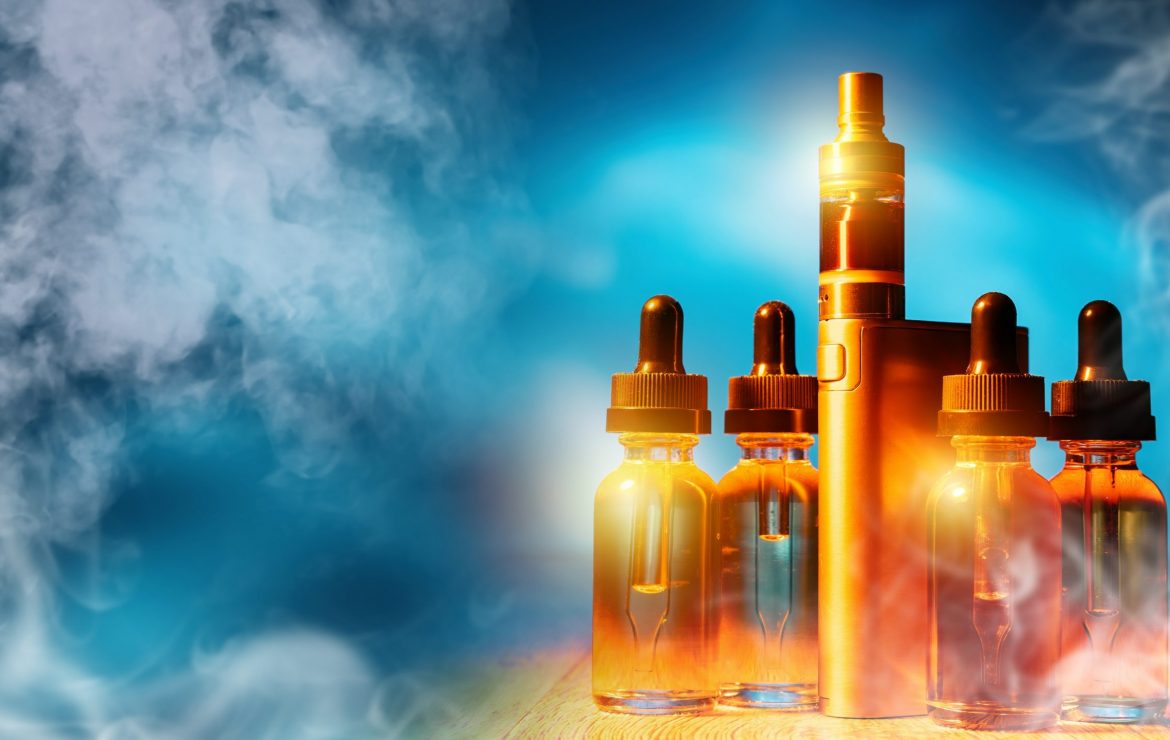The Impact of Vaping and Chemical Stimulant Addiction on Injured Workers’ Recovery

In recent years, the rise of vaping and the use of chemical stimulants, such as caffeine and energy drinks, has become a growing concern in the healthcare industry, particularly in the context of workplace injuries. For injured workers, addiction to these substances can significantly affect their recovery process, posing challenges for medical professionals, nurse case managers, and claims adjusters alike. Let’s explore the adverse effects of vaping and stimulant addiction on the healing process of injured workers. We’ll discuss the extra medical care they may need and outline the actions claims professionals can take to tackle these challenges effectively.
How Vaping Affects Injury Recovery
Vaping, often seen as a safer alternative to smoking, still poses numerous risks that can delay or impair the healing process of injured workers. Nicotine, the primary substance in most vaping products, is a vasoconstrictor, meaning it narrows the blood vessels. This reduced blood flow limits oxygen and nutrient delivery to injured tissues, particularly affecting wound healing, bone recovery, and muscle repair.
Specific Effects of Vaping on Injury Recovery:
- Delayed Wound Healing: Nicotine reduces the oxygen supply to tissues, which can result in slower wound healing and increased infection risk.
- Weakened Bone Healing: For workers with fractures or orthopedic injuries, vaping can slow the rate of bone regrowth and recovery, increasing the risk of complications or requiring extended recovery periods.
- Increased Inflammation: The chemicals in vaping products can trigger inflammatory responses, exacerbating pain and swelling in injured areas.
- Respiratory Complications: Workers recovering from surgery, particularly those involving general anesthesia, are at greater risk of respiratory complications if they vape, as the lungs are more susceptible to inflammation and irritation from chemicals.
The Role of Chemical Stimulants (Caffeine, Energy Drinks) in Recovery
Many injured workers rely on stimulants like caffeine or energy drinks to cope with fatigue, pain, or discomfort. While these stimulants offer temporary relief, they can negatively impact the recovery process in several ways. Caffeine and energy drinks often contain high sugar levels and other additives that can interfere with sleep, hydration, and cardiovascular health—key factors in injury recovery.
Specific Effects of Stimulants on Injury Recovery:
- Dehydration: Caffeine and energy drinks act as diuretics, increasing fluid loss and dehydration. Dehydration can slow healing and reduce overall recovery potential, especially for those with muscle injuries or surgeries.
- Sleep Disruption: Rest is essential for healing, and excessive stimulant consumption can interfere with sleep patterns. Poor sleep affects tissue repair, mental health, and the body’s immune response.
- Elevated Heart Rate and Blood Pressure: Stimulants increase heart rate and blood pressure, placing additional strain on the cardiovascular system. For injured workers, this can exacerbate pain and inflammation and complicate pre-existing conditions like hypertension.
Medical Challenges and Additional Doctors Required
Due to addiction to vaping and chemical stimulants, injured workers may require additional medical interventions beyond those directly related to their injury. Addiction complicates treatment, prolongs recovery times, and increases the likelihood of complications, which in turn necessitates a broader range of healthcare professionals to address the full scope of the worker’s needs.
Specialists Involved in Treating Addiction-Related Complications:
- Addiction Specialists: Workers with severe dependence on vaping or stimulants may need to consult an addiction specialist to develop a treatment plan for managing and reducing their substance use. This is particularly important for long-term injury cases where ongoing recovery is at risk due to continued substance abuse.
- Pulmonologists: For workers addicted to vaping, particularly those with respiratory conditions or surgeries, pulmonologists are often required to assess and manage the effects of vaping on lung health. Pulmonologists can also provide specialized care if vaping has exacerbated asthma, bronchitis, or other respiratory conditions that complicate recovery.
- Cardiologists: Injured workers with stimulant addictions, especially those consuming high levels of caffeine or energy drinks, may require a cardiologist’s evaluation. Stimulant use can exacerbate heart conditions, lead to arrhythmias, and elevate blood pressure, all of which could further complicate the recovery process.
- Sleep Specialists: Since both vaping and stimulant use disrupts sleep, injured workers suffering from sleep disorders may need to be referred to sleep specialists. Proper sleep is crucial for healing, and addressing sleep problems can expedite recovery and improve overall outcomes.
- Psychologists or Psychiatrists: Workers dealing with addiction often have underlying mental health issues, such as anxiety, depression, or stress. Consulting with a psychologist or psychiatrist is essential to address these co-occurring disorders and provide holistic care that includes mental health management during injury recovery.
The Role of Claims Professionals
For nurse case managers and claims adjusters, understanding the impact of vaping and stimulant addiction is critical to managing an injured worker’s case effectively. Addiction complicates the medical and legal aspects of injury claims, potentially increasing treatment costs and extending the duration of claims.
Key Responsibilities:
- Identify Substance Use: Early identification of workers who use or abuse vaping products or stimulants is crucial. This can be done through medical history reviews, patient interviews, and communication with treating physicians.
- Coordinate Care: Case managers must ensure injured workers receive the appropriate referrals to addiction specialists, cardiologists, pulmonologists, or other healthcare providers as needed.
- Monitor Compliance: Regular follow-ups with the injured worker, their healthcare providers, and the claims team can help monitor treatment compliance and progress. Ensuring that workers are adhering to recovery protocols, including limiting or eliminating their substance use, is key to a successful outcome.
- Support Addiction Treatment: Workers struggling with addiction may be resistant to treatment or unaware of the impact their substance use has on recovery. Nurse case managers can play a vital role in educating workers and facilitating access to addiction support services or treatment programs.
The addiction to vaping and chemical stimulants among injured workers presents a significant barrier to effective recovery. As nurse case managers and claims adjusters, it is essential to recognize the role that these substances play in slowing down healing, increasing the risk of complications, and prolonging claims. By addressing addiction and coordinating comprehensive care, you can improve recovery outcomes and support injured workers in returning to full health and productivity.
Addressing substance use is not just a matter of improving injury outcomes but also ensuring that workers receive the holistic care they need to prevent long-term health consequences.











